Marie Brands just went for it. Driven by her passion for sustainability, she founded Elexel, an independent electrolyzer testing and scale-up service company. Though it is still in its early stages, she dreams big. ‘My aim is to test and validate new technologies much faster than is currently the case.’
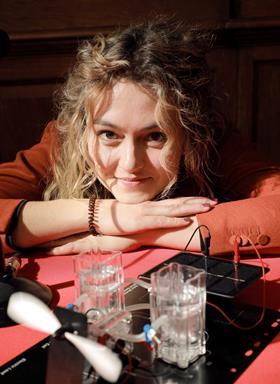
‘With electrolysis we can run chemical reactors on green electricity instead of heat from burning fossil fuels, which is still common practice today’, says Brands. ’We need this “electrification” of chemical reactions to reach the climate goals of 2030 and 2050.’
A major obstacle is that the required electrochemical innovation is not going fast enough. ‘There are hundreds of discoveries being published every day, new reactions and catalysts that are free of precious metals, to sustainable membranes and efficiency-improving designs for electrolyzers. It is amazing to see these developments, and it would be great to see them implemented in industry. But commercialization of new electrolysis technologies is very challenging.’
Unfortunately, there is no simple explanation. ’According to market research, innovation usually takes the longest when both a technology and its corresponding market are new. With electrolysis, this is still often the case. The result is that it takes on average fourteen years from discovery to full implementation and commercialization in chemical plants.’
Love for the electron
With Elexel, Brands foresees a way to change this. ‘One important step in the electrochemical innovation process is the testing and validation of the new technology’, she explains. ‘Before a new technology can be successfully and safely implemented in a (pilot) plant, it needs to fulfill certain requirements. In turn, this calls for rigorous testing and stepwise scaleup, which is a very expensive, time-consuming and often unstructured process. We will support other companies throughout this phase by offering a structured and independent testing and validation service. The activities can take place at the company’s facilities or can be carried out in the Elexel labs. This way, companies do not have to take on all the planning, financing and building during this innovation phase all by themselves.’
‘Commercialization of new electrolysis technologies is very challenging’
Marie Brands
The focus will be on the early innovation stages or low technology readiness levels (TRLs), says Brands. ‘TRLs span a scale from 1 to 9, indicating how ready a technology is for implementation. TRL 1 means it is basically just an idea in the lab at the university, while TRL 9 defines a technology that is ready for commercialization. We want to focus on new technologies from TRL 2-3, and help them develop up to TRL 6, which is approximately the pilot plant phase.’
But Brands is not there yet. Elexel was founded in January 2024, with at that point no more than a business plan and basic ideas about financing. And with a major driver: Brands’ passion for sustainability. ‘That passion began during my chemistry bachelor at the University of Amsterdam. I took a course in Big History, which made me realize how precious life on Earth is, and that we should take better care of our planet. I also realized that chemistry plays a key role in all this.’
Next, during her MSc internship at Avantium, a Dutch company that develops and manufactures sustainable chemicals for biobased polymers, her love for the electron was sparked. ‘It is such a simple and clean reagent, for which you only need green electricity. I just knew I had to do something with it.’
Support new technologies
Next, Brands started her PhD research within ARC CBBC, where she worked on electrochemical and photoelectrochemical production of hydrogen and the conversion of carbon dioxide. ‘During my research I saw that the consortium really did a wonderful job in bringing people from academia and industry together’, she says. ‘That was very inspiring, but at the same time, I experienced firsthand that academia and industry have different priorities, and I thought it might be interesting to support new technologies through that challenging phase out of the lab and into industry. When my PhD was coming to a close, I just went for it and founded the start-up.’
Presently, Brands is working hard to explore the market, set up collaborations with research consortia and companies, identify subsidy possibilities and find the first customers. ‘Every day is a challenge’, she points out. ‘There are a lot of new things to figure out, it feels a bit like the start of my PhD research.’
The plans for the company’s future are already in place. ‘I hope to set up a testing lab in the coming years, where we can test a large variety of room-temperature electrolysis technologies’, says Brands. ‘And then hopefully, Elexel can offer a broad range of tests to help validate those technologies. It would be a dream come true if we were able to validate a new technology in five years, instead of the average fourteen years it takes now. Then we would really contribute to pushing this promising field of sustainable chemistry ahead.’
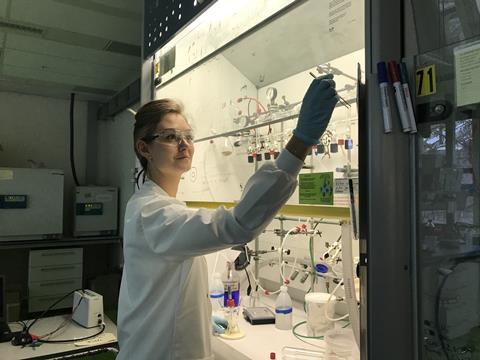





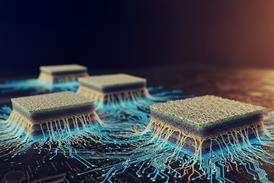

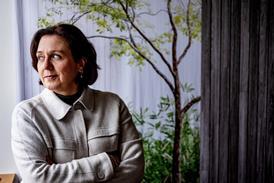
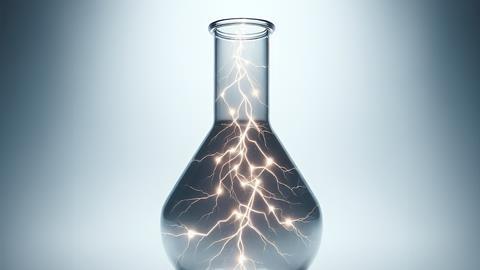







Nog geen opmerkingen